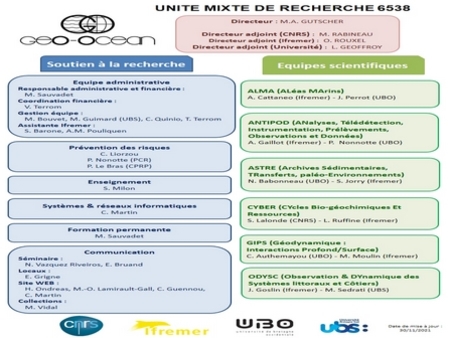Fatima is a process research engineer
What was your line of study?
I obtained a degree in chemical engineering at the Ecole Nationale Polytechnique in Algiers and a Masters in Bioprocess and Process Engineering in Energy and Environment at the ENSTA Paris Tech University of Paris Saclay. I am currently in the first year of my PhD at the Laboratory of Geochemical Cycles and Resources, part of the Marine Geoscience Research Unit at Ifremer. My PhD is a research collaboration project between Ifremer (Institut Français de Recherche pour l’Exploitation de la Mer) and Irstea (Institut national de Recherche en Sciences et Technologies pour l'Environnement et l'Agriculture). I will spend the first half (18 months) of my PhD at Ifremer and the second half at the Laboratory of Refrigeration Processes, Irstea, Paris.
What does your research consist of?
My work consists of studying the formation/accumulation and dissociation processes of gas hydrates in the aqueous phase and in porous matrices.
Gas hydrates are crystalline structures composed of water molecules where gas molecules become trapped in cavities. Gas hydrates form in low temperature and high pressure conditions. They naturally form in ocean sediments of continental margins and in the permafrost of polar regions.
My thesis project consists of two lab components: an experimental component and one focused on modeling observed physico-chemical processes. To begin with I shall be conducting experiments on the formation and dissociation of methane hydrates in geological matrices to gain further insights into their formation kinetics and to quantify the storage capacity of these hydrates according to the degree of water saturation of the geological matrix.
These experiments will help us to understand the mechanisms of the formation of gas hydrates and to identify the main parameters (methane injection rate, size of the particles making up the matrix, degree of water saturation, etc.) that effect the rate of hydrate formation. The data generated by these experiments, in addition to those available in the literature, will be used to develop a model capable of describing the physico-chemical phenomena observed (kinetics and thermodynamics).
This knowledge is fundamental to improve understanding of the distribution of hydrates in sedimentary environments, their influence on seabed stability and their role in the cycle of ocean methane, but also to optimize energy storage and cold distribution processes to efficiently estimate the size of storage systems. These methods are considered to be improvements in the management of hydrate-related energies and their ability to store cold.
What motivated you to join the teams at Ifremer?
It is rather unusual to see a thesis topic focus on applications in completely different fields.
Through my thesis at IFREMER and Irstea, I will discover both the ocean, a very vast and fascinating environment and I will also develop and optimize clean refrigeration processes. My laboratory at Ifremer focuses on the physico-chemical studies of natural hydrates in sedimentary environments. Supervised and guided by experts such as Livio Ruffine, Anthony Delahaye, Laurence Fournaison, Pascal Clain, Véronique Osswald, I am enriching my knowledge and experiencing a privileged involvement in the world of research and more specifically in the field of gas hydrates.
Do you have any hobbies?
Oh yes, many! A PhD student still has time for leisure! I personally enjoy sketching and I am looking to learn how to paint on porcelain. I also enjoy horse riding and, weather permitting, nothing beats a bike ride into the city of Brest!

